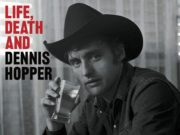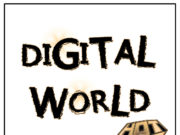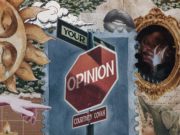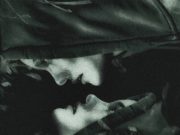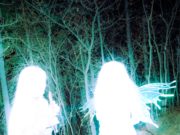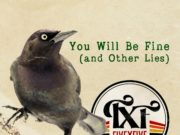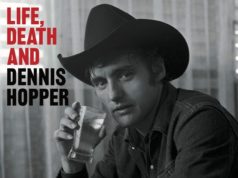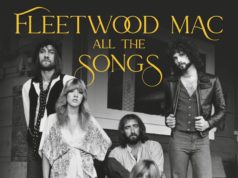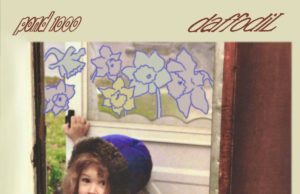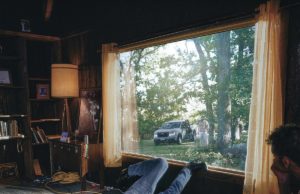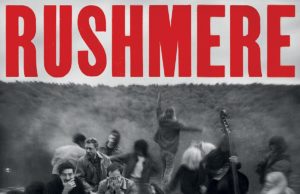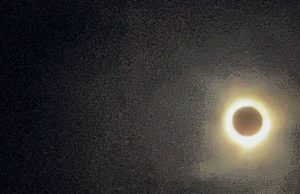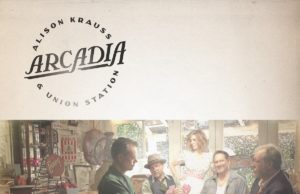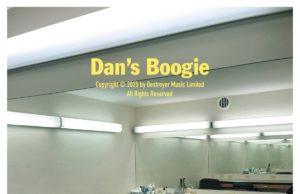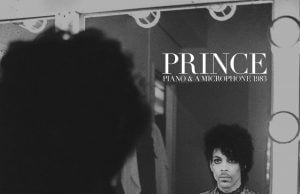 It must be some kind of record (no pun intended). Steve Miller manages to slip four self-references into the first verse of his big 1973 hit, The Joker. Here’s the lyric:
It must be some kind of record (no pun intended). Steve Miller manages to slip four self-references into the first verse of his big 1973 hit, The Joker. Here’s the lyric:
“Some people call me the space cowboy, yeah
Some call me the gangster of love
Some people call me Maurice
‘Cause I speak of the pompatus of love.”
Space Cowboy is a track from Brave New World (1969), the band’s third release, and the first after the departure of founding members Jim Peterman and Boz Scaggs. Gangster of Love is a song from the band’s second album, Sailor (1968). “Maurice” comes from the song Enter Maurice, which is on their seventh album, Recall The Beginning… A Journey From Eden (1971). On that track you’ll also find the first reference to the “pompatus of love.”
Pompatus is a made-up word, and it’s got a funny little story attached to it. Officially, such words are referred to as nonce words — gibberish designed to fit a rhyme scheme, pattern or for effect. You’ll often find them in kids songs or poems. Think Dr. Seuss. While Miller is credited with coining the term pompatus, the truth is he kind of borrowed it. Miller heard the song The Letter by the doo-wop group The Medallions and its use of the nonce word “puppelutes.” In fact, The Letter has three nonce words in it — caremily, pismotality and puppetutes. In the song, the lyric goes:
“Let me whisper sweet words of pismotality
and discuss the puppetutes of love.”
Enter Maurice has this line:
“Come closer to Maurice
so I can whisper sweet words of epistemology in your ear
and speak to you of the pompatus of love.”
Miller simply misheard the nonce words and replaced them with nonce words of his own. Still, “pompatus” now has its own wiki page, was uttered by Wolfman Jack in the Guess Who song Clap For The Wolfman, and inspired the title of a 1996 Jon Cryer film. The Joker was the title track from what became The Steve Miller Band’s first No. 1 album — which happened in Canada. The song was his first No. 1 hit single in the U.S. and the U.K.
Anyway, it got me thinking about songs that reference other songs by that same songwriter. I immediately thought of one, which was kind of designed to do that: Glass Onion by The Beatles.
John Lennon wrote Glass Onion in frustration and annoyance. He was fed up with fans constantly reading too much into the band’s lyrics. The song is the second track on their White Album — the same album as McCartney’s Helter Skelter. If Lennon only knew the horrors to come when Charles Manson misinterpreted that one. Anyway, Glass Onion references Strawberry Fields Forever in the first two lines of the first verse, and dedicates four lines of the second verse to I Am The Walrus. This one is kind of funny because Lennon is clearly screwing with fans by singing “the walrus was Paul.” It wasn’t. On the cover of Magical Mystery Tour, the bandmembers are dressed as animals. Lennon is a walrus, McCartney a hippopotamus, George Harrison is a rabbit, and Ringo Starr a chicken. Another line in the second verse references Lady Madonna — a McCartney song, like The Fool On The Hill, which is referenced in the fourth verse, and Fixing A Hole, which is referenced in the song’s bridge.
The White Album actually has a Harrison song which references a McCartney song on the album — Ob-La-Di, Ob-La-Da. Harrison hated the track and referenced the song in Savoy Truffle, a title inspired by the box of chocolates that his friend Eric Clapton was devouring:
“We all know obla-dibla-da
But can you show me where you are?”
Chicago alt-rockers Veruca Salt probably have the best proto-Glass Onion. The big hit on their debut album, American Thighs, was a track called Seether. I had it on so many of my ’90s mix tapes. Three years later, the band put out the album Eight Arms To Hold You — which was the working title of the Beatles film and album Help! The track Volcano Girls not only references Seether, but does so in a Glass Onion style:
“I told you about the seether before
You know the one who’s neither or nor
Well, here’s another clue if you please
The seether’s Louise.”
Staying with The Beatles, I suppose I have to include She Loves You, the chorus of which Lennon suddenly starts singing during the outro of All You Need Is Love. And Lennon’s first proper solo album — the incredible Plastic Ono Band (1970) — contains the track God. It’s about dismissing all the deities he’s ever considered, and putting his relationship with Yoko Ono at the centre of his life. One of those deities: The Beatles. So, continuing on from Glass Onion, he again references I Am The Walrus — “I was the walrus, now I’m John.”
Moving on from the Beatles universe, former Apple Records signee James Taylor references the song Mud Slide Slim, from his previous album of the same name, on the 1972 track Woh, Don’t You Know. He does this again four years later on the track Money Machine, from 1976’s In The Pocket. This time he mentions his first big hit, Fire And Rain.
The Mamas & The Papas had a hit in Canada in 1970 with the autobiographical single Creeque Alley. Most people probably recall the lyric “no one’s getting fat except Mama Cass,” which I thought was hilarious when I was a kid. The song tells the story of the band and name-drops a bunch of other musicians from the San Francisco scene. The last line of the song references their first big hit California Dreamin’ from 1965.
Seeing as I mentioned Canada, let’s have a Canadian example. Sloan referenced People From The Sky from their sophomore album Twice Removed (1994) on the track 400 Metres — the closer of their third album, One Chord To Another (1996):
“And now you know about those people in the sky,
Well they’re the same folks that held me up.”
Another Canadian band, Klaatu, may have found the most original way to reference an earlier song of their own. They took Anus Of Uranus from their debut album and played it backwards. Over top they constructed a new song — Silly Boys, which appears on the album Sir Army Suit.
If you dig these slightly obscure examples, how about the Lowell George-penned Mothers Of Invention track Didja Get Any Onya from the 1970 album Weasels Ripped My Flesh? Frank Zappa can be heard saying “blow your harmonica, son” — a reference to Trouble Every Day from their first album, Freak Out (1966).
More famous is David Bowie’s Ashes To Ashes from Scary Monsters (1980). The track deals with Bowie’s struggles with drugs and makes several references to his first hit, Space Oddity. The first is the mention of “Ground Control” in the first verse. Then there’s the chorus, which name-checks the hero of Space Oddity, Major Tom:
“Ashes to ashes, funk to funky
We know Major Tom’s a junkie
Strung out in heaven’s high
Hitting an all-time low.”
Finally, the outro of the song also mentions Major Tom:
“My mother says, to get things done
You better not mess with Major Tom.”
Speaking of going from funk to funky, Sly Stone references a bunch of his songs in the third verse of Thank You (Falettinme Be Mice Elf Agin): Dance To The Music, Everyday People, Sing A Simple Song and You Can Make It If You Try.
Buddy Holly updated Peggy Sue’s status by writing Peggy Sue Got Married. Sadly, the future wasn’t as rosy for John Mellencamp’s Jack & Diane. In his 1998 song Eden Is Burning, he updates the story of the “two American kids growing up in the heartland” of his 1981 hit. Spoiler alert: “Diane and Jack” are breaking up.
The Ramones drop the name of one of their best-known songs, Blitzkrieg Bop, into the lyric of 7-11 from Pleasant Dreams (1981). Todd Rundgren does something similar to The Joker at the end of his track Fair Warning, from Initiation (1975). He references lyrical lines and song titles: “And every once in a while why don’t you think of me,” is a line from the hit Hello, It’s Me. “Can’t you see the light shining in my eyes,” is from his hit, I Saw the Light. He then name-checks the songs A Long Time A Long Way To Go, from Runt (1971), his 1974 single The Dream Goes On Forever, and Just One Victory, from A Wizard, A True Star (1973).
In 1977, Blue Öyster Cult put out the album Spectres. It’s one I almost never see in the shops, and I want it because it has the studio version of Godzilla. It also has Goin’ Through The Motions, which references a track from the band’s self-titled 1972 debut. Buried towards the end of the first side is Stairway To The Stars. It opens with this:
“You can have my autograph
I think I’ll sign it ‘love to you’
But should I sign it just for you?”
This imagined exchange is referenced in the middle of Going Through The Motions:
“To thee I dedicate this photograph
I’ll even sign it ‘love to you’ again.”
Lou Reed opens his fantastic 1978 album Street Hassle with the track Gimmie Some Good Times. The song references a handful of Reed’s earlier cuts in a self-skewering way — mostly Rock & Roll Animal, and the Velvet Underground favourite Sweet Jane:
“Hey, if that ain’t the rock ’n’ roll animal himself, what you doing bro.
(Standing on the corner)
Well, I can see that, what you got in your hand
(Suitcase in my hand)
No, shit, what’s this
(Jack is in his corset, Jane is in her vest).”
Sting gets some self-skewering in too. His first big solo hit was Love Is The Seventh Wave. The structure of it, at times, is quite similar to his biggest hit with The Police, Every Breath You Take, from just two years earlier. Seventh Wave has a pattern of listing all the things that love is deeper than. Finally, the last two lines of the song offer:
“Every breath you take, every move you make
Every cake you bake, every leg you break.”
Al Green manages to get three song references into the last three lines of his 1973 track Your Love Is Like The Morning Sun.
“Love is the morning sun, shining so brightly
It’s me that’s missing your love, now
I’m tired of being alone, bye
Still in love with you, now
Let’s stay together.”
I’ve written before about just how much I LOVE early, pre-Silver Bullet Band Bob Seger. If anyone has a copy of his second album, Noah (1969), I’ll buy it. But I digress. His third album, Mongrel (1970), has a track called Lucifer in which Bob defends his band and their sound to the critics and naysayers. The song makes multiple references to songs on the first album, Ramblin’ Gamblin’ Man (1969).
“Ramblin’, gamblin’, lovin’, shovin’
Probably won’t end up with nothin’
Lucy Blue, Chicago Green, I’ll love ’em ’til they thaw
Takin’ time to grind my crosscut saw.”
Lucy Blue is from Tales of Lucy Blue, while Chicago Green is found in Down Home. The ramblin’, gamblin’ reference is obvious — but in case you wondered, the crosscut saw he’s singing about is the song by Albert King.
Deep Purple were known to self-reference. I can find at least two examples. The first is a mention of (the incredible) Fireball title track within the lyrics of the autobiographical Space Truckin’. Fireball came out in 1971 and Space Truckin’ is the closer of their 1972 album Machine Head (also referenced in the lyric):
“The fireball that we rode was moving
But now we’ve got a new machine.”
Purple referenced the first line of Smoke On The Water (also from Machine Head) in the lyrics of Hungry Daze on their 1984 comeback album, Perfect Strangers: “We all came out to Montreux, but that’s another song.”
R.E.M. piled a bunch of references into the lyrics for Sing For The Submarine, from 2008’s Accelerate album. There are passing mentions of Feeling Gravity’s Pull, It’s The End Of The World As We Know It (And I Feel Fine), Electron Blue and High Speed Train.
KISS and Cheap Trick played a lot of gigs together. And like KISS, Cheap Trick’s breakthrough record was a live album. The band recorded Cheap Trick At Budokan in April 1978, just as their studio album Heaven Tonight was hitting store shelves back in North America. Budokan is most famous for the hit version of I Want You To Want Me, a track from their 1977 album In Color. Ignoring the hidden track Oh Claire, Heaven Tonight closes with How Are You?, which references I Want You To Want Me:
“I said I want you
I want you, need you, love you
Want you to want me
Remember?”
Some fans have interpreted the B-side to Under Pressure as Queen’s answer to Glass Onion. But that’s not what Soul Brother is. The throwaway track is Freddie Mercury’s spur-of-the-moment ode to guitarist / bandmate / friend Brian May. The lyric is littered with references to earlier Queen songs, and it’s cheesy as fuck:
“He’s my best friend he’s my champion (You’re My Best Friend and We Are The Champions)
And he will rock you rock you rock you (We Will Rock You)
‘Cause he’s the saviour of the universe (Flash Gordon)
He can make you keep yourself alive (Keep Yourself Alive)
Make yourself alive
Ooh brother cause he’s somebody somebody he can love (Somebody To Love)
He’s my soul brother
When you’re under pressure feeling under pressure.” (Under Pressure)
It’s cheesy, but it’s not awful like Brian Wilson’s Smart Girls. Quite possibly nothing he ever recorded is this awful. It’s filled with Beach Boys samples while Brian raps. He raps about how he doesn’t really objectify women the way his Beach Boys hits suggest he does. Funny, though — you’ll find every single one of those hits on Spotify, but no trace of this ill-advised stinker from 1990. It sounds like the kind of ’80s anti-drug song you’d hear at a school assembly. The song was released as the final track on Wilson’s “unofficial” followup to his 1987 comeback album. It’s credited to Wilson now, but used to be credited to him, his former psychiatrist Eugene Landy, and Landy’s girlfriend. Dr. Landy produced the song, apparently. So much for the Hippocratic Oath.
In desperate need of a palate cleanser, let’s talk about The Kinks. Not only does the band’s 1981 hit Destroyer sound a lot like their 1964 hit All Day And All Of The Night, it references their 1970 hit Lola in the very first line:
“Met a girl called Lola and I took her back to my place
Feeling guilty, feeling scared, hidden cameras everywhere.”
Genesis had a lot to prove on their 1976 album A Trick Of The Tail — their first after the departure of lead singer Peter Gabriel. The album closes with the instrumental suite Los Endos. The song is a medley of melodies from the album you just finished listening to. The only lyric is three lines, which serves as a tip of the hat to the departed Gabriel. The lines are taken from the last verse of the epic Supper’s Ready, the centrepiece of Foxtrot (1972):
“There’s an angel standing in the sun
There’s an angel standing in the sun
Free to get back home.”
Ween reference the awesome Birthday Boy, from their debut God Ween Satan, in the lyrics of Baby Bitch from 1994’s Chocolate And Cheese. The Who’s second rock opera Quadrophenia, is partially autobiographical. The track 5:15 references the band’s first big hit — My Generation — and its signature stammered vocals:
“Magically bored
On a quiet street corner
Free frustration
In our minds and our toes
Quiet storm water
M-m-my generation
Uppers and downers
Either way blood flows.”
And here’s your playlist:
• • •
Area Resident is an Ottawa-based journalist, recording artist, music collector and re-seller. Hear (and buy) his music on Bandcamp, email him HERE, follow him on Instagram and check him out on Discogs.




